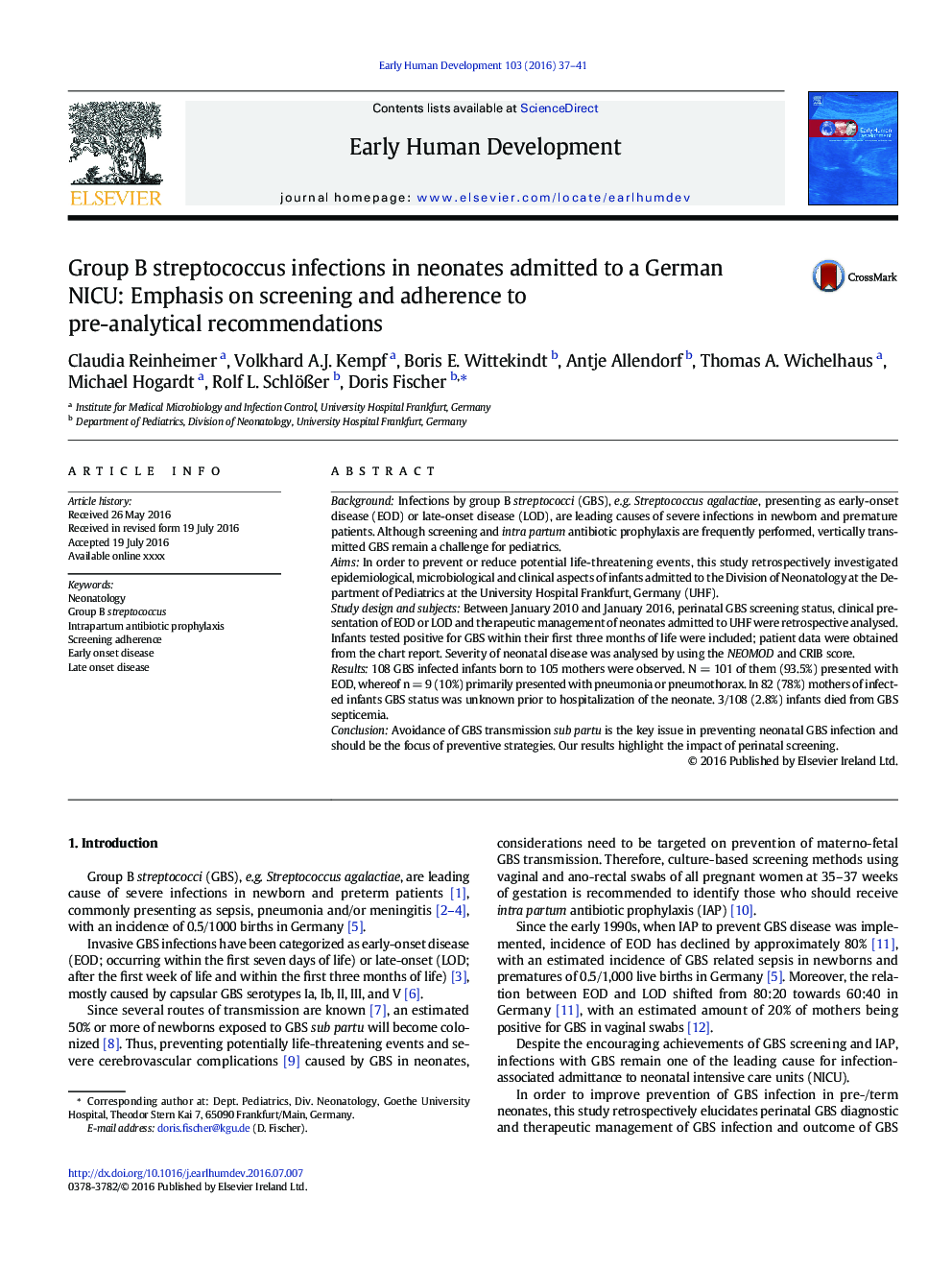| کد مقاله | کد نشریه | سال انتشار | مقاله انگلیسی | نسخه تمام متن |
|---|---|---|---|---|
| 3916366 | 1599463 | 2016 | 5 صفحه PDF | دانلود رایگان |
• Neonatal Infections by group B streptococci remains a challenge for perinatologists. This study investigated epidemiological, microbiological and clinical aspects of 108 patients with neonatal GBS infections. Most newborns (93.5%) presented with EOD; 3 (2.8%) died from GBS septicemia.
• Maternal GBS status was unknown in the majority of patients (78%).
• Incidence of maternal GBS Screening was lower than expected; and failed in some cases.
• IAP was performed in all cases of maternal GBS colonization; however, it could not prevent GBS infection in all cases
• Prevention of GBS transmission sub partu seems to be the key issue and should be the focus of future efforts.
• Given GBS related death and severity of the disease especially in very low birthweight preterms, any efforts should be directed to increase adherence to current and targeted GBS screening guidelines and to prevent therapeutic failure.
BackgroundInfections by group B streptococci (GBS), e.g. Streptococcus agalactiae, presenting as early-onset disease (EOD) or late-onset disease (LOD), are leading causes of severe infections in newborn and premature patients. Although screening and intra partum antibiotic prophylaxis are frequently performed, vertically transmitted GBS remain a challenge for pediatrics.AimsIn order to prevent or reduce potential life-threatening events, this study retrospectively investigated epidemiological, microbiological and clinical aspects of infants admitted to the Division of Neonatology at the Department of Pediatrics at the University Hospital Frankfurt, Germany (UHF).Study design and subjectsBetween January 2010 and January 2016, perinatal GBS screening status, clinical presentation of EOD or LOD and therapeutic management of neonates admitted to UHF were retrospective analysed. Infants tested positive for GBS within their first three months of life were included; patient data were obtained from the chart report. Severity of neonatal disease was analysed by using the NEOMOD and CRIB score.Results108 GBS infected infants born to 105 mothers were observed. N = 101 of them (93.5%) presented with EOD, whereof n = 9 (10%) primarily presented with pneumonia or pneumothorax. In 82 (78%) mothers of infected infants GBS status was unknown prior to hospitalization of the neonate. 3/108 (2.8%) infants died from GBS septicemia.ConclusionAvoidance of GBS transmission sub partu is the key issue in preventing neonatal GBS infection and should be the focus of preventive strategies. Our results highlight the impact of perinatal screening.
Journal: Early Human Development - Volume 103, December 2016, Pages 37–41
